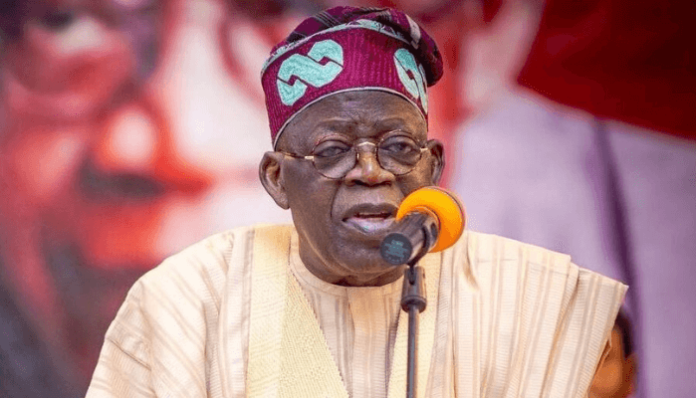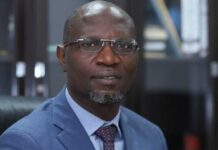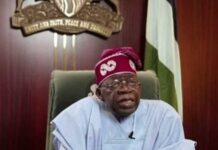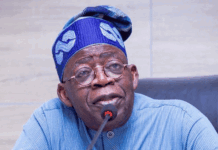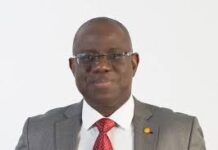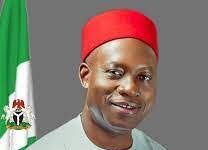*Says dialogue, negotiation should be prioritised by labour unions
*Pledges to establish synergy with academic unions
Barely 24 hours after President Bola Tinubu cancelled the controversial deduction of 40 per cent of Internally Generated Revenues (IGRs) from federal universities across the country to avert crisis, the president has said his administration will take all necessary actions to ensure that universities do not embark on strike actions again.
He said constructive dialogue and negotiation should be prioritised over actions that negatively impact the welfare and future of Nigerian students.
Tinubu said the federal government was willing to establish synergy with all the academic unions within universities in the country as well as exhaust all avenues for dialogue before any strike actions.
Speaking at the 33rd convocation ceremony of the Federal University of Technology, Akure (FUTA), Tinubu expressed the hope that the cooperation of the unions with the federal government would ensure the needed educational development in the country.
Tinubu, who was represented by a former President of West Africa College of Surgeon (WACS), and a visiting Professor of the National Universities Commission (NUC), Prof. King-David Terna Yawe, said the synergy would help to create an atmosphere of peace and tranquillity in all campuses.
The president said his administration was committed to tackling all challenges confronting the education sector in the country and to reposition the sector.
“I would like to enjoin all the unions in our universities to cooperate with the government to deliver the needed development by ensuring an atmosphere of peace and tranquillity on our campuses.
“On our part, we will ensure that motivational activities are put in place to ensure improved productivity. Reciprocative actions would be expected from our universities as the government works hard to raise the bar of a conducive teaching and learning environment.
“To whom much is given, much is expected. Dialogue, patience, and positive engagements are better means of achieving results than strike actions. Industrial disharmony does nothing but disrupt life, waste time, and elongate the academic calendar.
“Therefore, all avenues for dialogue must be explored and exhausted before strike actions are considered, and as the last resort”
He said his government was not unaware of the challenges facing higher educational institutions in the country, particularly the universities, assuring all Nigerians that his government was making frantic efforts to address the situation holistically.
“We will ensure that educational institutions get their dues to perform their statutory duties optimally. To put this in motion, one of my first actions as the President of Nigeria after my inauguration was the signing of the Students Loan Bill into law.
On the students’ loan, he said: “This Act will enable indigent students in all our tertiary institutions to have access to interest-free loans which they would pay back at their convenience in the future when they are gainfully employed.
“Under my watch and as I have said in my manifesto, no student will drop out of school as a result of inability to pay school charges.
“There are many good plans this government has in the pipeline for the university community in particular and the higher education sector in general. Your welfare, including human and infrastructural development will be the priority of the federal government and I have no doubt that we can achieve stability in the university academic calendar if we come together as critical stakeholders. However, this cannot be achieved unless a peaceful teaching and learning environment is guaranteed, and purposeful and participatory governance is fostered. My government would not shirk its responsibilities in this regard,” he added.
Tinubu called the organised private sector operators and international partners to collaborate with Nigerian universities and research institutes in the areas of research funding and the utilisation of research outputs for national integration and development.
He said since everyone was aware that university education is capital-intensive, stakeholders have a role to play because the government alone cannot fund the universities.
The president said: “This will also rub off on our graduates in the areas of value addition, experience, hands-on training, exposure, and less expenditure on employees’ engagement and training. If this kind of learning environment is achieved, we will have students who will be well-focused, and eschew all forms of violence and other anti-social behaviours. Hence, I believe that today’s graduands have been certified not only for their academic standing, but also for being worthy,” Tinubu explained.
The federal government, in a letter dated October 17, 2023, titled ‘Implementation of 40% automatic deduction from internally generated revenue of partially funded federal government institutions,’ said it would begin the deduction with effect from November 2023.
The letter signed by the Accountant-General of the Federation, Mrs. Oluwatoyin Madein; and the Director of Revenue and Investment, Office of the Accountant-General of the Federation, Felix Ore-ofe Ogundairo, said the auto-deduction policy of gross IGR was in line with the Finance Circular with reference number: FMFBNP/OTHERS/IGR/CRF/12/2021 dated December 20, 2021.
But reacting, the Committee of Vice Chancellors of Nigerian Universities had written a protest letter, demanding that the government rescind the plan.
The Secretary-General of the Committee of Vice-Chancellors of Nigerian Universities, Prof. Yakubu Ochefu, had argued that the government could not be demanding 40 per cent of varsities IGR when it had refused to grant them autonomy.
The Academic Staff Union of Universities (ASUU) had also kicked against the planned deduction.



